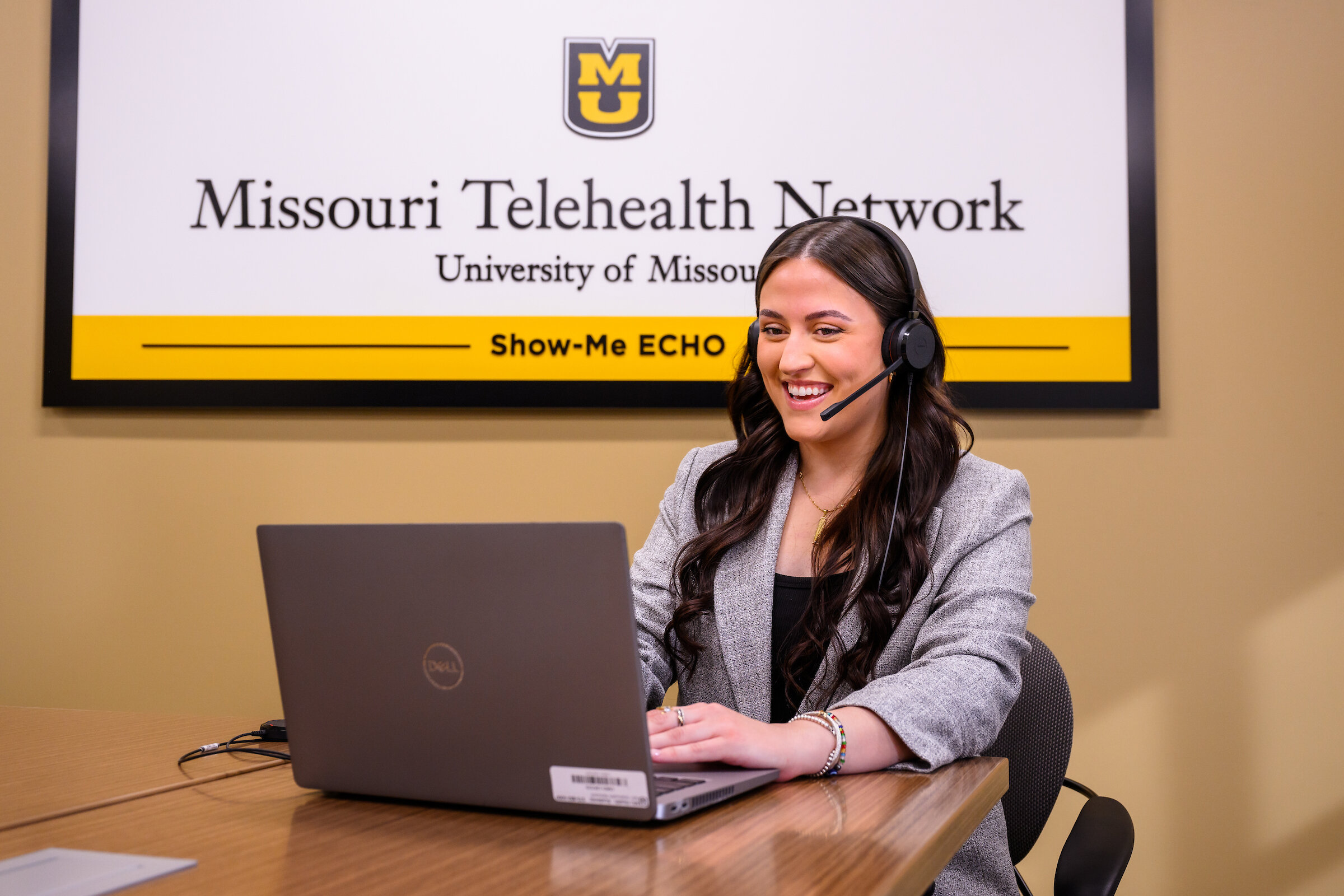More Americans suffer from chronic pain than diabetes, heart disease, and cancer combined. Yet, a shortage of pain medicine specialists persists, causing many pain sufferers to seek care in primary care settings.
Researchers from the University of Missouri School of Medicine have found that an innovative tele-mentoring program can help address reliance on opioids in the management of pain, with potential benefits for patients, families and communities.
“Claims Data Analysis of Provider-to-Provider Tele-mentoring Program Impact on Opioid Prescribing in Missouri” was recently published in the Journal of Opioid Management.
Project Extension for Community Healthcare Outcomes (ECHO) is an innovative educational and mentoring model where primary care providers and other clinicians connect with experts via videoconferencing. Tele-mentoring facilitates knowledge sharing between academic medical centers, medical specialists, and community primary care providers. There are currently 45 pain-related ECHO programs in the United States, including at the University of Missouri.
MU School of Medicine researchers found significant differences in opioid prescribing patterns of Pain Management ECHO participant medical providers compared to non-participating providers for patients enrolled in Missouri’s Medicaid program.
“We observed statistically significant differences in prescription dosages for patients whose providers consulted with Pain Management ECHO hub team specialists compared to non- participating providers,” said Mirna Becevic, Ph.D., assistant professor at the University of Missouri School of Medicine and lead project evaluator for the Show-Me ECHO.
“ECHO participants’ patterns of lower rates of opioid proscribing reflects greater adherence to evidence-based recommendations and best practices in safe opioid prescribing.”
While prior studies have shown that provider participation in ECHO has promising impacts on patient care, the evidence is largely limited to case and observational studies. In this study, Becevic and her fellow researchers analyzed the opioid prescribing patterns of pain management ECHO participants.
Show-Me ECHO at the University of Missouri is part of the Missouri Telehealth Network. In addition to pain management, Show-Me ECHO programs include tele-mentoring for COVID-19, autism, dermatology and a variety of other health topics, including child health and behavioral health.
“We continue to find that Show-Me ECHO is a valuable tool for participating providers on a wide array of medical specialties,” said Becevic.
“Linking providers in rural Missouri with medical specialists is an important element in the University of Missouri School of Medicine’s mission to save and improve lives, especially among underserved and vulnerable patient populations.”
Becevic worked on this study with fellow MU colleagues Olabode Ogundele, doctoral student; Xing Song, Ph.D., assistant professor of Biomedical Informatics; Praveen Rao, Ph.D., associate professor of electrical engineering and computer science; Suzanne Boren, Ph.D., professor at the College of Health Sciences; Tracy Greever-Rice, Ph.D., assistant research professor at the College of Health Sciences; Karen Edison, MD, senior medical director of the Missouri Telehealth Network; and Douglas Burgess, MD, a psychology professor at the University of Missouri-Kansas City.
More information:
Olabode B. Ogundele et al, Claims data analysis of provider-to-provider tele-mentoring program impact on opioid prescribing in Missouri, Journal of Opioid Management (2024). DOI: 10.5055/jom.0825
Citation:
Telehealth program created to improve access to specialty care found to reduce reliance on opioids in pain management (2024, May 7)
retrieved 7 May 2024
from https://medicalxpress.com/news/2024-05-telehealth-access-specialty-reliance-opioids.html
This document is subject to copyright. Apart from any fair dealing for the purpose of private study or research, no
part may be reproduced without the written permission. The content is provided for information purposes only.
